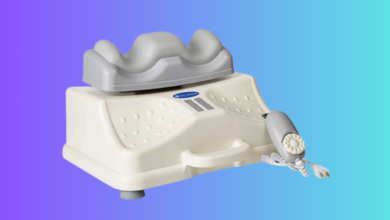AISAP announces $13M seed for AI-powered ultrasounds

Discover how companies are responsibly integrating AI in production. This invite-only event in SF will explore the intersection of technology and business. Find out how you can attend here.
In a major leap in medical imaging, Israeli startup AISAP announced today that it has secured $13 million in seed funding for its product: an AI-powered software platform that connects to common ultrasound wands and sensors to provide rapid assessment of patients’ conditions for physicians — even those doctors and medical professionals without any formal training in analyzing ultrasound imagery.
AISAP’s Point-of-Care Assisted Diagnosis (POCAD) delivers results in as little as five minutes, compared to other ultrasound procedures that can take hours or even days for results to become available, as they are limited by the availability of radiologists who can interpret images and the labs where said images are processed.
“The problem that we’re addressing is actually the fact of imaging today worldwide is a scarce resource, and there’s not enough to go around,” said Roni Attali, AISAP CEO and a PhD in biotechnology, neurology, and organic chemistry, in a video call interview with VentureBeat yesterday.
The funding round for the two-year-old startup was led by Harel Insurance Investments & Financial Services Ltd. and Shoni Health.
Founding and mission
AISAP was founded by a diverse group of experts across medical, technology, and intelligence sectors, including Adiel Am-Shalom of the IDF’s elite 8200 Unit, Ehud Raanani, Director of the Leviev Cardiovascular and Thoracic Center at Israel’s Sheba Medical Center and Ehud Schwammenthal, a leader in echocardiography — the technique of using ultrasound to scan the heart and analyze its health and condition.
The company’s mission, driven by the expertise and vision of its founders, focuses initially on cardiac medicine with plans to expand into other medical areas.
“We want to provide doctors with information which is essential after a short five, six, seven minute scan, and not after a 45 minute scan that you will see in the echolabs, which can take up to one hour,” said Robert Klempfner, AISAP’s co-founder and chief medical officer, in the same video call with VentureBeat. “So we want to be efficient, and we want to reach a diagnosis to help the user to obtain the gist of the information rapidly, and then the physician at the bedside can decide what they want to do” to treat the patient — including getting more full and accuracy imagery, or intervening if it’s an emergency.
Delivering an initial diagnosis faster than traditional methods may be the difference between life or death for some patients — potentially millions of people — especially when dealing with such a vital organ as the heart.
How AISAP’s POCAD system works

The POCAD software lives in the cloud but it is encrypted, and compliant with the U.S.’s Health Insurance Portability and Accountability Act (HIPAA) laws and the company notes it is ISO 13485 certified.
Most importantly for the purposes of physicians and medical experts using it, it can be deployed in hospitals or out in the field, and is connected on the back end to common, existing ultrasound wands and sensors already in use by many responders.
“You don’t need to buy a new machine, because the hospitals already have it,” said Attali.
POCAD is designed to be user-friendly for any physician, featuring an “urgency score” to prioritize patient care based on condition severity and a quality score for the scans, ensuring reliable diagnostics even with less experienced operators.
The machine learning underpinning POCAD was trained on 24 million echocardiogram video clips from more than 300,000 studies made available through Sheba Medical Center in Ramat Gan, Israel.
“How can we distill the knowledge of a lot of cardiologists we have at Sheba — millions of frames of data, of cardiac images that have been interpreted by top cardiologists, experts in echocardiography?” asked Klempfner rhetorically. “How can we create a funnel and take all this information and provide this information to aid the non-cardiologist at 2 am in the emergency department, on the medicine floor, or in the critical care department?”
The system is priced on a software-as-a-service (SaaS) subscription model based on the number of users at each customer, categorized into different buckets
Compelling initial results
In a recent study at Israel’s Sheba Medical Center, still under review, POCAD was tested in emergency and internal medicine departments.
The findings were compelling: 29% of 660 patients, who had not received comprehensive ultrasounds, were found to have at least one moderate, previously undetected medical condition.
Tamir Pardo, former head of Mossad and current leader of AISAP’s Strategic Board, also emphasized the transformative potential of this technology: “The ability to provide critical diagnoses anywhere, anytime, without the need for a dedicated expert, represents a paradigm shift that could save countless lives.”
With its fresh funding and cutting-edge AI solution, AISAP aims to redefine the standards of medical diagnosis, making rapid, accurate, and accessible ultrasound evaluations more widely available.
POCAD is available now at hospitals in Israel and AISAP plans to launch it in the U.S. pending FDA approval, ASAP (as soon as possible).





